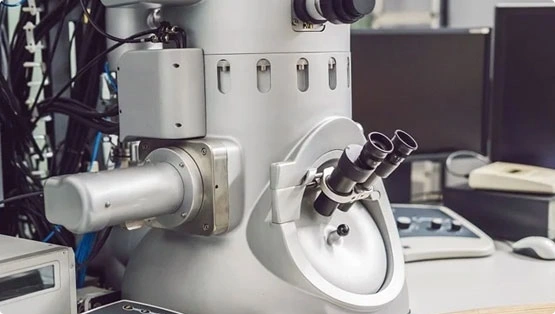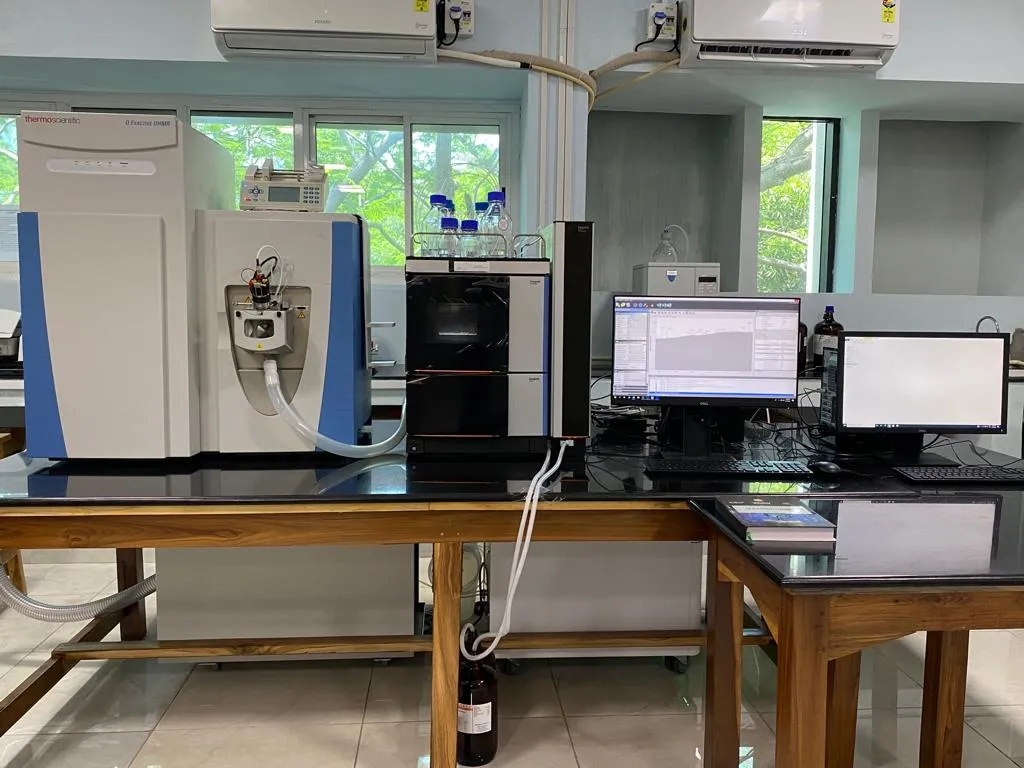Indian patents Granted
To maximize technological relevance, industrial linkages will be strengthened for local and national development. The outstanding team of collaborators, partners and advisors that has been assembled will guarantee maximum international visibility and impact and further raise the profile of the Institute. Advanced facilities and resources will be created, and next generation leaders will be trained with greater national and international participation, placing the larger objectives of the IoE as paramount. Thus, this proposal promotes local excellence while partnering with the best in the world.

Cryogenic Electron Microscopy (Cryo-EM)
Cryogenic Electron Microscopy (Cryo-EM) facility for single particle analysis and soft materials applications, composed of two microscope combination, with rapid screening and continuous imaging capabilities to obtain structures of macromolecules and materials at angstrom resolution will be coming up at IIT Madras.
We hope to establish the facility in 2022. A building has been planned. Please click here for an artistic view.
Click here to see the construction in progress.

Wastewater Based Epidemiology (WBE)
We are establishing a new research centre that will test wastewater in a city for indicator organisms and chemicals and make the data
available to the public. The facility will act as an intelligence unit to track and prevent a virus outbreak in its early stages. The data obtained from various wastewater sources and treatment
facilities will be analyzed and made available to the public through dashboards. Gradually, this facility will be extended to other parts of
India.
The benefits of wastewater analysis include water fingerprinting to study the chemical and biological molecules in it. The WBE project includes aspects such as tracking pollutants, pesticides, licit and illicit drugs to which the population is exposed.
We will also work on building a hydro- informatics platform for the city with appropriate modelling tools to give spatiotemporal information of the data derived from WBE studies.
The WBE will also be employed to detect the emerging issues of concern, such as increasing antimicrobial resistance due to excessive
consumption of antibiotics. Identifying the right policies to control pharmaceuticals and personal care products will be of great value in improving public health.
We intend to help the public, policymakers, practitioners and public health officials combat the ongoing Covid 19 pandemic through
wastewater analysis. Apart from SARS Cov-2, several other pathogens prevailing in a population can be detected through analysis of wastewater. Techniques for analysis include polymerase- chain-reaction (PCR) and mass spectrometry (MS), combined with data analytics.
With the worldwide outbreak of COVID-19, it has been challenging to understand its transmission. Our focus is on advanced research and getting a foresight into the ever-evolving virus patterns whilst also giving us a chance to better prepare. This calls for a better understanding of the population health to predict and control the disease spread, be it a pandemic or an endemic and this new centre
at IIT Madras will tackle this need.
Wastewater carries molecules that correlate to what people consume and how their health is changing. At an individual or household level, toilet waste can tell a lot about the user. For a city, the sewage gives information about the health of its inhabitants.
Wastewater-based epidemiology (WBE) is a way to understand this and may be considered as mining of chemical information from sewage.

